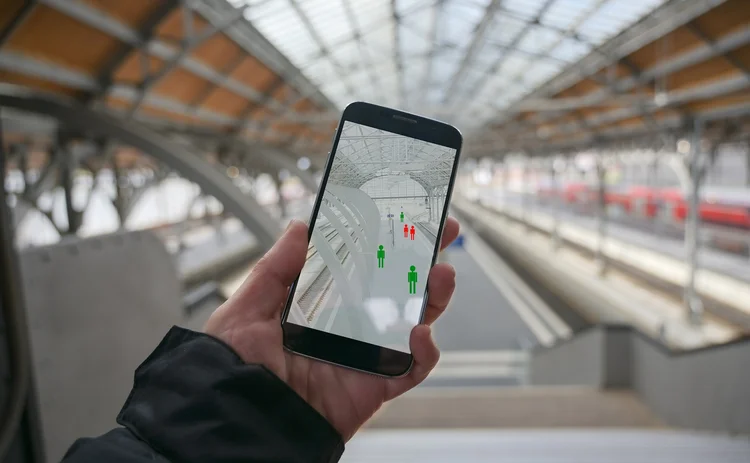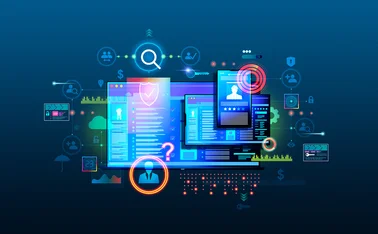Government contact-tracing apps: in tech (vendors) we trust?

Since COVID-19 hit, numerous government-sponsored contact-tracing apps have launched to help stem its spread, but low take-up threatens their survival. As people’s trust in their politicians takes a dive, might other technology options signal a shift in the balance of control?
Apps on the increase
In Balanced mobile data initiatives are vital in the COVID-19 fight, I considered how governments could address privacy concerns as they developed ways to use mobile data in the fight to prevent coronavirus spreading. Since then, mobile location data – which is based on data from cell sites, GPS receivers and Bluetooth beacons – has been employed in a number of COVID-19-related initiatives: contact tracing, enforcing quarantine, analyzing data and mapping hot-spots. Of these, contact-tracing initiatives – as the Bank for International Settlements (BIS) has noted – promise to help with isolating initial cases, reducing new infections, and potentially controlling the spread of the pandemic. As governments in several countries start to re-impose lockdowns in the face of a second wave of coronavirus, anything that can help to ease such measures is likely to be welcomed.
So far, officials in more than 30 countries have decided to develop apps to help reduce the spread of COVID-19. Most have opted to base their technology on the application programming interface (API) released by Google and Apple in May 2020. The technology, which exchanges data via Bluetooth connections, operates in a decentralized way: data is stored on a user’s phone rather than in a central database, and then relayed to a server if an individual is at risk. In September 2020 Apple and Google announced ‘Exposure Notifications Express’, which incorporates this capability directly into the most recent iOS 13.7 system update and Android 6.0+. Also in September, the UK government released its app for England and Wales, while so far in the US 11 states have released an app and three more are developing one.
Some way from success
Contact-tracing apps can help to control coronavirus outbreaks, but no country has yet reached the desired outcome of slowing the spread of the virus. This is largely because of:
- Technology challenges. Some developers have discovered that contact-tracing apps can drain battery power, which for many users is quite literally a turn-off. Unfortunately, if the app is off, no location data is registered. Another potential hurdle is highlighted by the revelation that the design of the app works better on Android phones than iPhones.
- Privacy concerns. European Data Protection Board guidelines on the use of location data and contact-tracing tools advise that the use of contact-tracing applications should be voluntary, and should not rely on tracing individual movements, but rather on information about proximity to phones. Nevertheless, privacy concerns remain – in Norway, for example, the app has been suspended due to privacy issues.
- Low uptake. Some studies have shown that for a contact-tracing app to help stem the pandemic, about 60% of citizens would have to use it (although a lower percentage could still help to reduce infection rates).
This emphasizes the big issue for governments: even if the technology challenges are overcome and privacy concerns are tackled, appropriate uptake is vital if this technology is to help fight the virus in any significant way.
A question of trust
Widespread use of a contact-tracing app can of course be hampered by lower smartphone penetration or poor connectivity issues. Increasingly, however, it’s clear that in the current situation these are not the main obstacles to widespread app uptake. One variable that technology developers often overlook is the level of trust – ‘will their app work?’; ‘what will they do with my data?’ – that individuals need to have in a particular service provider before they feel comfortable downloading and using an app.
In the case of contact-tracing apps, people generally believe that they are sharing their personal data with the government – making it, in effect, the ‘developer’. According to data gathered by YouGov, there is a significant difference between countries in how far their citizens trust their governments’ approach to COVID-19 (see Table 1). In France, for example, about one-third of the population completely or somewhat have faith in the government, compared with almost 80% in Australia (in May 2020). In the US and the UK in particular, government approval ratings have decreased over time, so that more people now disapprove of the government’s handling of the crisis than approve of it.
Table 1: A question of trust – citizens’ view of governments’ coronavirus handling, and downloads of contact-tracing apps
|
Country |
% of people who think the government is handling coronavirus very or somewhat well* |
% of population that has downloaded a contact-tracing app |
|
Australia |
79% |
|
|
Japan |
42% |
|
|
Singapore |
81% |
|
|
US |
38% |
NA** |
|
Germany |
63% |
|
|
France |
32% |
|
|
Norway |
79% |
30%*** |
|
Poland |
40% |
|
|
UK |
30% |
21%**** |
*Latest available data from https://yougov.co.uk/topics/international/articles-reports/2020/05/18/international-covid-19-tracker-update-18-may **There is no data available for the entire country. ***Data for June, when the app was withdrawn. ****Data for England and Wales (Scotland has a separate app and people in Northern Ireland can use the Republic of Ireland’s app).
Data is for countries with smartphone penetration of greater than 60%.
Note that this is not an exhaustive list – it only includes countries for which data is available.
Source: Chartis Research, based on third-party research data (to view sources, click on embedded links).
Based on the data in Table 1, Figure 1 shows the fairly strong positive correlation between people’s perception of their government’s ability to handle the coronavirus pandemic and their willingness to download a contact-tracing app. (Although it’s worth noting that the penetration of contact-tracing apps can be attributed to several factors, including the marketing budget employed.)
Figure 1: Correlation between the percentage of people who downloaded a contact-tracing app and the percentage of people who think the government is handling coronavirus very or somewhat well

Chart shows the Pearson correlation coefficient based on the country data in Table 1.
Source: Chartis Research
Transparency and straight talking needed
Ironically, this trend indicates that governments that are viewed less positively by their citizens might achieve more satisfactory results in the fight against a pandemic by using technology that does not rely heavily on mass adoption to succeed. (One example might be using aggregated data from mobile providers on the general movement of people, to determine how crowded cities are compared with pre-lockdown times.) Governments that have their citizens’ broad support in their handling of COVID-19, on the other hand, should ensure they choose transparent solutions that place citizens’ privacy at their core. The European Parliament has adopted a resolution reinforcing the European Commission’s recommendations for full transparency, so that people can verify the underlying protocol of apps to assess their security and privacy.
Research conducted in Australia suggests that privacy concerns are the main reason why people choose not to download an app. According to the same study, developers can take specific steps to encourage people to opt in more often – such as ensuring they have an option to opt out and be ‘forgotten’. The rhetoric used by the key players is also crucial. The research suggests, for example, that people are more willing to download a contact-tracing app to monitor others’ health rather than to help the economy.
Another possibility worth considering is outsourcing a contact-tracing initiative to a nonprofit research institution. Perhaps not surprisingly, some data suggests that, when it comes to handling their health information, people tend to have more trust in doctors and researchers than governments and private companies. This could explain the recent success of the UK’s contact-tracing app – which is called NHS COVID-19 and features a prominent NHS logo – despite the relatively low percentage of people there who think the government is handling the crisis well. A study from last year indicated that 59% of UK citizens trust the NHS to use their personal data ethically, making it the only organization trusted by more than half of respondents. Some also argue that support for the NHS has grown during the pandemic.
Into the future…
In any case, we should have a better idea of the direction of travel when we have more data on the adoption of Apple and Google’s latest technology. One thought: if the tech companies are perceived as more trustworthy than governments over contact-tracing data, the balance of power could shift once and for all. Which raises another important question: who will be in control after that?
Further reading
(Chartis, 2018)
(Chartis, 2018)
Points of View are short articles in which members of the Chartis team express their opinions on relevant topics in the risk technology marketplace. Chartis is a trading name of Infopro Digital Services Limited, whose branded publications consist of the opinions of its research analysts and should not be construed as advice.
If you have any comments or queries on Chartis Points of View, you can email the individual author, or email Chartis at info@chartis-research.com.
Only users who have a paid subscription or are part of a corporate subscription are able to print or copy content.
To access these options, along with all other subscription benefits, please contact info@risk.net or view our subscription options here: http://subscriptions.risk.net/subscribe
You are currently unable to print this content. Please contact info@chartis-research.com to find out more.
You are currently unable to copy this content. Please contact info@chartis-research.com to find out more.
Copyright Infopro Digital Limited. All rights reserved.
As outlined in our terms and conditions, https://www.infopro-digital.com/terms-and-conditions/subscriptions/ (point 2.4), printing is limited to a single copy.
If you would like to purchase additional rights please email info@chartis-research.com
Copyright Infopro Digital Limited. All rights reserved.
You may share this content using our article tools. As outlined in our terms and conditions, https://www.infopro-digital.com/terms-and-conditions/subscriptions/ (clause 2.4), an Authorised User may only make one copy of the materials for their own personal use. You must also comply with the restrictions in clause 2.5.
If you would like to purchase additional rights please email info@chartis-research.com






